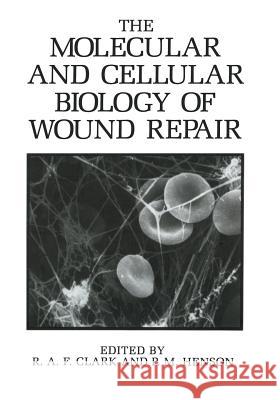The Molecular and Cellular Biology of Wound Repair » książka
The Molecular and Cellular Biology of Wound Repair
ISBN-13: 9781461357254 / Angielski / Miękka / 2012 / 597 str.
Editing a book of this nature was a simultaneously exhilarating and frightening experience. It was exhilarating to draw from cell biologists, biochemists, and molecular biologists, as well as those dermatologists, pathologists, and pul monologists who are cell biologists at heart, to author chapters. At the same time, it was frightening to ask such busy investigators to devote their precious time to writing chapters that summarize not just their own endeavors but their entire area of expertise. However, the authors assuaged our fears by enthusi astically accepting the proposal to write on specific topics despite the time burden, and to update and willingly accept our editorial comments. In the editors' view, the authors have captured the important scientific data in their respective fields, have organized the data into an understandable outline, and have applied the information to elucidating wound repair processes. The explosion of new, important discoveries in the field of wound repair and related areas as our book was developing has been very unsettling. This observation predicts obsolescence. In response to this possibility, the authors and the editors have attempted to build fundamental concepts upon existing data. Hopefully, these concepts will help provoke further experimentation to unravel the complex, interwoven processes of wound repair. The book has been organized into three parts: Inflammation, Granulation Tissue Formation, and Extracellular Matrix Production and Remodeling.











